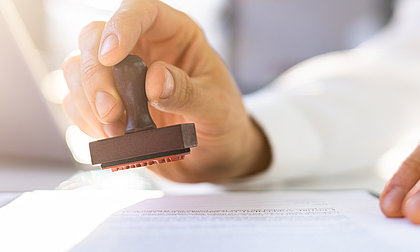Professional recognition
In order to be able to work in Germany, foreign qualified specialists must have their professional or university degree recognised for certain professions. This involves checking whether the qualification acquired abroad is equivalent to a corresponding German profession.
Recognition is mandatory for so-called regulated professions, such as those of doctors, engineers or teachers. In some cases, these professions also require a professional licence, which in turn requires a certain level of proficiency in German. For other, non-regulated professions, recognition is voluntary. If qualified specialists from third countries wish to enter Germany to work, professional recognition is often a prerequisite for entry.
The qualified specialist goes through a recognition procedure to have the professional qualification recognised. This begins with the application to the office responsible for the profession and ends with a decision on full, partial or no equivalence. The application is for recognition for a specific German reference profession.
Even if recognition is not necessary for certain professions, the procedure is worthwhile. For instance, the certificate or notice of recognition enables employers to classify the skills and knowledge of the qualified specialist more confidently at a later stage.
The regional advisors at the WelcomeCenter Saxony-Anhalt provide initial advice during the process and can explain the recognition procedure to you in specific cases. The IQ Network Saxony-Anhalt provides in-depth counselling on professional recognition. All the evidence for the recognition procedure is compiled in the process.
For qualified specialists who are still abroad and would like to submit an application for recognition from there, the Central Service Point for Professional Recognition (ZSBA) is the first point of contact.
Further information on the recognition procedure and the respective legal basis can be found in our Information library.


